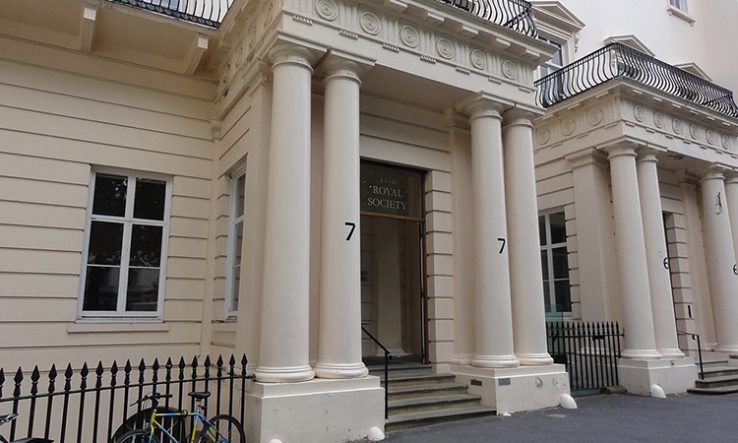
Image: Tom Morris [CC BY-SA 3.0], via Wikimedia Commons
Prizes and medals awarded to 25 researchers for their contribution to science, including on Covid-19
Science broadcaster Alice Roberts and protein engineering pioneer Alan Fersht are among the winners of the Royal Society’s prestigious awards and medals this year.
A total of 25 winners were announced on 4 August in recognition of their contributions to science.
Roberts was awarded the learned society’s inaugural David Attenborough Prize for her contribution to public engagement in medicine, anatomy, biology, evolution and archaeology through lectures and media work, as well as for her work as a professor of public engagement at the University of Birmingham and as president of the British Science Association.
Fersht, a chemist at the Laboratory of Molecular Biology and a chemistry professor at the University of Cambridge, was awarded the Copley Medal, the society’s oldest scientific prize, for his work on “the development and application of methods to describe protein folding pathways at atomic resolution, revolutionising our understanding of these processes”.
“The Royal Society’s medals and awards celebrate those researchers whose groundbreaking work has helped answer fundamental questions and advance our understanding of the world around us,” said Royal Society president Venki Ramakrishnan.
“They also champion those who have reinforced science’s place in society, whether through inspiring public engagement, improving our education system, or by making STEM careers more inclusive and rewarding.
“This year has highlighted how integral science is in our daily lives, and tackling the challenges we face, and it gives me great pleasure to congratulate all our winners and thank them for their work.”
Other winners include Victoria Kaspi, an astrophysicist at McGill University in Canada, who was awarded the Bakerian Medal and Lecture for her research on “neutron stars and their utility for constraining basic physics”.
Barry Everitt, a professor of psychology at the University of Cambridge, won the Croonian Medal and Lecture for “research which has elucidated brain mechanisms of motivation and applied them to important societal issues such as drug addiction”.
The society noted that several of this year’s winners have also been working on issues relating to the Covid-19 pandemic, including Julia Gog, professor at the University of Cambridge.
Gog received the Rosalind Franklin Award and Lecture for her achievements in the field of mathematics but whose expertise in infectious diseases and virus modelling has seen her contribute to the pandemic response, including as a participant of the Scientific Advisory Group for Emergencies.
And her Cambridge colleague David Spiegelhalter won the Society’s Michael Faraday Prize for bringing “key insights from the disciplines of statistics and probability vividly home to the public at large, and to key decision-makers, in entertaining and accessible ways, most recently through the Covid-19 pandemic”.
Finally, David Stuart, professor at the University of Oxford, won the Gabor Medal for his contributions to understanding virus structure, including the spike protein of the SARS-CoV-2 virus, responsible for Covid-19, “to provide insights which can then be used to inform drug design and vaccines”.